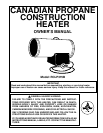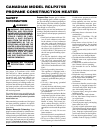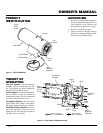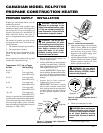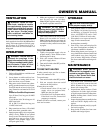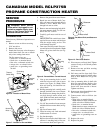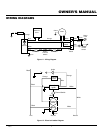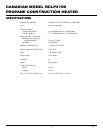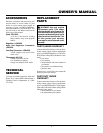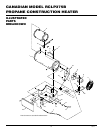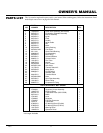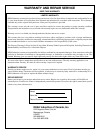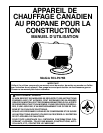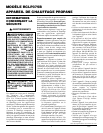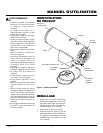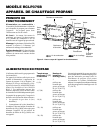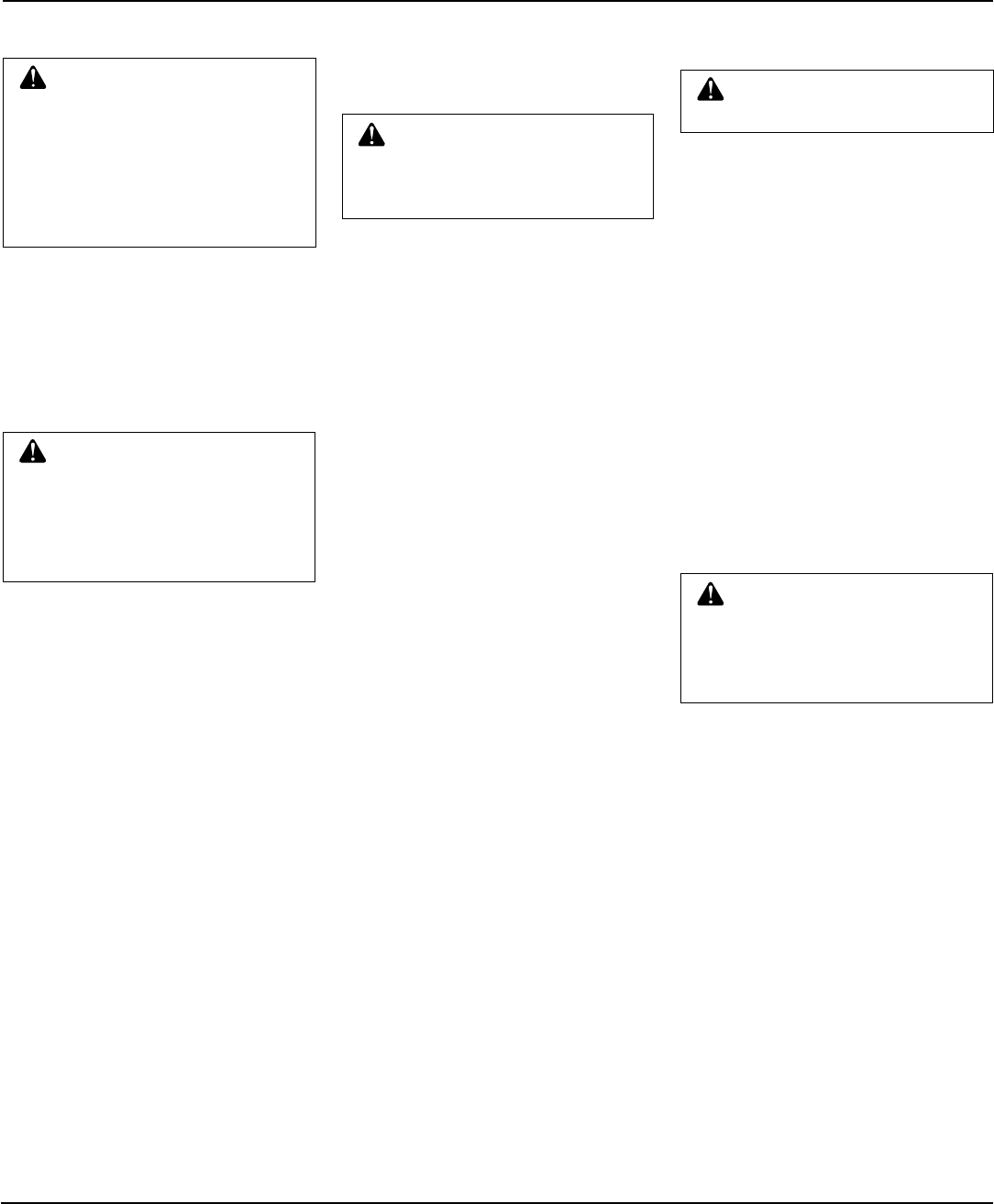
5
103910
OWNER’S MANUAL
VENTILATION
WARNING: Follow the mini-
mum fresh, outside air ventila-
tion requirements. If proper fresh,
outside air ventilation is not pro-
vided, carbon monoxide poison-
ing can occur. Provide proper
fresh, outside air ventilation be-
fore running heater.
OPERATION
WARNING: Review and un-
derstand the warnings in the
Safety Information Section, page
2. They are needed to safely oper-
ate this heater. Follow all local
codes when using this heater.
Provide at least three square feet (0.28 m
2
) of
fresh, outside air for each 100,000 Btu/Hr of
rating. This heater requires a fresh air open-
ing of at least 11.25 square feet (1.05 m
2
).
Provide extra fresh air if more heaters are
being used.
TO START HEATER
1. Follow all installation, ventilation and
safety information.
2. Locate heater on stable and level sur-
face. Make sure strong drafts do not
blow into front or rear of heater.
3. Plug power cord of heater into a three-
prong, grounded extension cord. Exten-
sion cord must be at least six feet (2 m)
long. Extension cord must be UL/CGA
listed.
Extension Cord Size Requirement
Up to 50 feet (15 m) long, use 18 AWG
rated cord.
51 to 100 feet (16 to 30 m) long, use 16
AWG rated cord.
101 to 200 (31 to 60 m) feet long, use
14 AWG rated cord.
4. Plug extension cord into a 120 volt/60
hertz, three-hole, grounded outlet.
5. Open propane supply valve on propane
tank(s) slowly.
Note:
If not opened
slowly, excess-flow check valve on pro-
pane tank may stop gas flow. If this
happens, close propane supply valve
and open again slowly.
WARNING: Do not adjust
regulator below 7 psig (48 kPa) or
above 20 psig (138 kPa) . Heater
may not run properly.
6. Make sure regulator is set between 7
and 20 psig (48 and 138 kPa).
Note:
Higher regulator setting will al-
low heater to produce more heat.
7. Turn on/off switch to the ON position.
Heater will start within six seconds.
Note:
If heater does not start, turn on/
off switch to the OFF position. Wait ten
seconds for safety control to reset, then
try again.
TO STOP HEATER
1. Tightly close propane supply valve on
propane tank(s). Allow heater to burn
remaining fuel in hose.
2. Wait a few seconds. Heater will burn
gas left in supply hoses.
3. Turn on/off switch to the OFF position.
4. Unplug heater.
TO RESTART HEATER
If safety control stops gas flow to heater,
motor will continue to run.
To restart heater:
1. Turn on/off switch to the OFF position.
2. Wait ten seconds, then turn on/off
switch to the ON position.
If heater does not restart
• Check manual valves (if any) and
supply valves (on propane tank).
Make sure they are open.
• Check fuel level in propane tank(s).
If fuel level is too low, contact local
propane gas company.
If heater still does not restart, contact your
local service center.
1. Store propane tank(s) in safe manner.
See Chapter 5 of Standard for Storage
and Handling of Liquefied Petroleum
Gases, ANSI/NFPA 58 and/or CAN/
CGA B149.2. Follow all local codes.
2. Place plastic cover caps over brass fit-
tings on inlet connector and
hose/regulator assembly.
3. Store in dry, clean, and safe place. Do
not store hose/regulator assembly in-
side heater combustion chamber.
4. When taking heater out of storage, al-
ways check inside of heater. Insects and
small animals may place foreign ob-
jects in heater. Keep inside of heater
free from combustible and foreign ob-
jects.
1. Keep heater clean. Clean heater annu-
ally or as needed to remove dust and
debris. If heater is dirty or dusty, clean
heater with a damp cloth.
2. Inspect heater before each use. Check
connections for leaks. Apply mixture
of liquid soap and water to connections.
Bubbles forming show a leak. Correct
all leaks at once.
3. Inspect hose/regulator assembly before
each use. If hose is highly worn or cut,
replace.
4. Have heater inspected yearly by a quali-
fied service agency.
5. Keep inside of heater free from com-
bustible and foreign objects.
CAUTION: Disconnect heater
from propane supply tank(s).
STORAGE
MAINTENANCE
WARNING: Never service
heater while it is plugged in, con-
nected to propane supply, oper-
ating, or hot. Severe burns and
electrical shock can occur.



